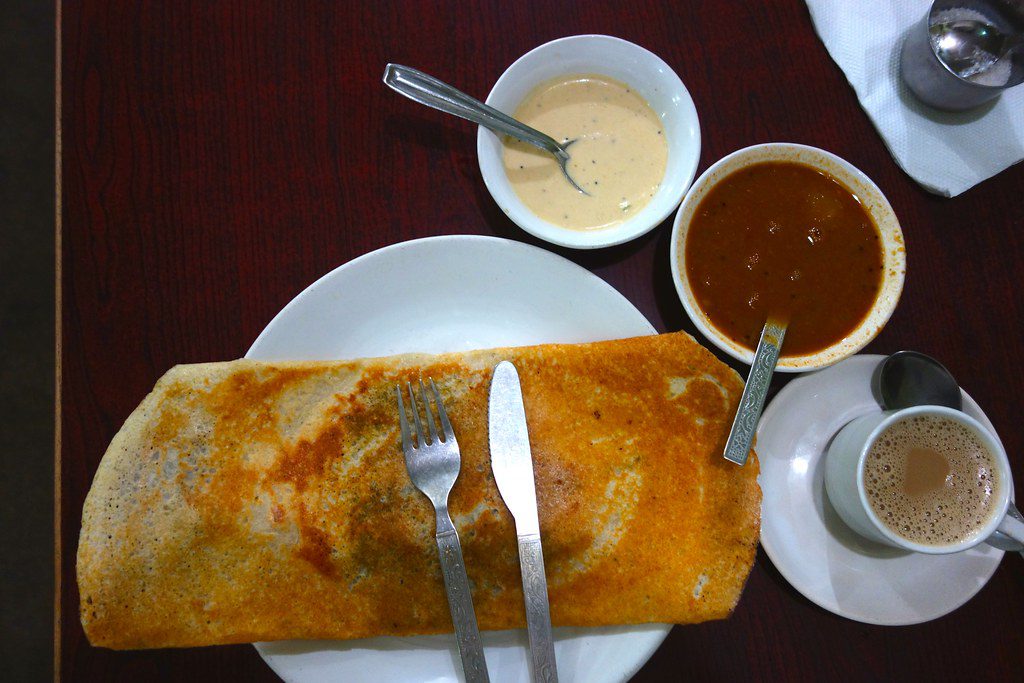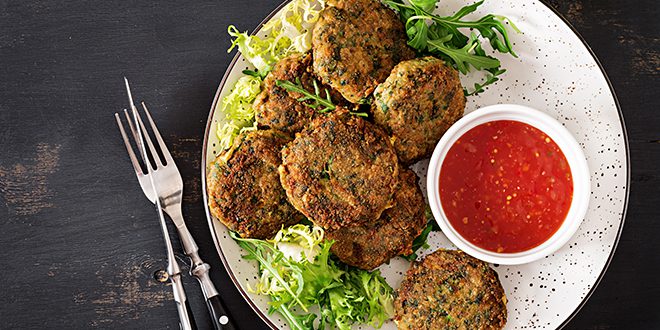We often consider all our standard breakfast or food options extremely unhealthy. But is that true? Just like in every cuisine, we Indians, too, have our own comparatively unhealthy food options. But that doesn’t mean they are the only food options in this vast country. As a country that houses multiple cultures, cuisines and cooking methods, we have a variety of dishes to choose from, right? Most often, we are only aware of the limited number of food options that we are familiar with and are completely ignorant about the food options. So, let me introduce you to a popular breakfast option the south Indians enjoy daily, Dosa and coffee.
The history of Dosa
Dosa and coffee are popular food options in South India and multiple regions of India. We will all be familiar with coffee’s history, but what about Dosa? Historians have been debating whether to win over the Dosa for centuries. While some historians believed or argued that Dosa originated in Udupi-the present-day Karnataka, others argued that it originated in Tamilnadu. There is literature to prove this presence. But as both these dosas have a different consistency, they are different. Ok, let me explain. Udupi dosa is much thinner and crispier than the Tamilnadu version of Dosa which is thicker and soft. Now let’s talk about what goes into a dosa.
Dosa is made with a fermented batter. The batter for Dosa was prepared the previous day and left outside. The batter is left to ferment for at least 8 hours or usually overnight. This batter made with Idli rice, urad dal, fenugreek seeds, poha or flat rice and sabudana, soaked for 8 to 10 hours, is extremely healthy for you. Are you wondering how? Let me explain.
How are Dosa and coffee healthy for you?


Well, we can come to coffee later on. Now, let’s examine the Dosa in dosa and coffee combo exclusively. The urad dal and fenugreek seeds we add to the dosa batter is the element that makes it healthy. Both of these ingredients present in the batter trigger the fermentation process. Fermentation is the process where the sugars in a dish are broken down by the enzymes produced by microorganisms without oxygen. Various microorganisms, like bacteria and fungi, have a unique set of metabolic genes in them. These genes allow them to produce enzymes that break down distinct sugar metabolites.
When it comes to dosa batter, while it is left for fermentation, the number of microorganisms in the grains and legumes we added into the batter increases as this multiplication process continues; the microorganism divide and produce the lactic acid and carbon dioxide. It will make the batter anaerobic.
So, as a healthy, light, yet filling Indian breakfast item, Dosa, accompanied by coffee, can give one an excellent start to their day. As dosa preparation involves little to absolutely zero oil usage, this is an excellent food for people searching for a healthy Indian food option. Moreover, it is a relatively cheap yet nutritious food that can be easily prepared and is available almost everywhere. But, the main important element that makes the Dosa a healthy food option is the microorganisms present in it, also known as probiotics.
How can one make the coffee in Dosa and coffee healthy?
Well, all of you know that normal coffee in coffee and Dosa is not so healthy, right? But don’t worry. One can always pair their Dosa with green coffee, enhancing your breakfast and making it even healthier. Oh, are you unaware of green coffee that will do so well with your Dosa? Then let me educate you a bit.
The green coffee that will go well with your Dosa is made with the same coffee beans that make regular coffee. Yup, the only difference between the normal coffee you have in your pantry and the green coffee is that, while the former is roasted, the latter is not. Green coffee is raw and thereby tastes a lot milder than regular coffee.
Coffee beans get their mature, strong flavour and typical aroma from roasting. So, as green coffee skips the process of roasting and brews the coffee with unroasted beans, they don’t possess the same intense flavour and aroma. The most important fact to note is that this hot beverage which tastes almost like green tea is far more beneficial than a regular cup of coffee. Well, now, let me introduce you to a product that will make your Dosa and coffee extremely healthy, Nutriplus Qafe!
Nutriplus Qafe: The best coffee for your Dosa and coffee


Nutriplus Qafé is a great health supplement for promoting overall health. The natural blend of green coffee is an excellent anti-oxidant, reduces blood sugar levels and regulates blood pressure. It consists of a special blend of unroasted coffee bean extract in it. The green coffee bean extract in Nutriplus Qafe contains 53% chlorogenic acid (CGA) and nutriose. Nutriose is a clinically researched soluble fibre that increases the growth of good bacteria and your satiety and curbs hunger by 71%. As a result, nutriose can reduce your appetite and, in turn, reduce your calorie intake.
Furthermore, Nutriplus Qafe promotes better digestive health by increasing the growth of good bacteria. The regular use of green coffee can block your fat and carbohydrate consumption in the body. So, it actively provides digestive tolerance as well as a unique combination of benefits because of slow and balanced assimilation.
Overall, all these benefits add towards revitalising your mind and body to energise you for weight management and fitness. Now, let’s look at how to prepare your favourite cup of green coffee with Nutriplus Qafé. So what are you waiting for? Grab your cup of Nutriplus Qafe and enjoy your healthy Dosa and coffee breakfast for a happy and healthy future.
Also Read:
Egg Bonda; a Perfect Tea Time Snack





